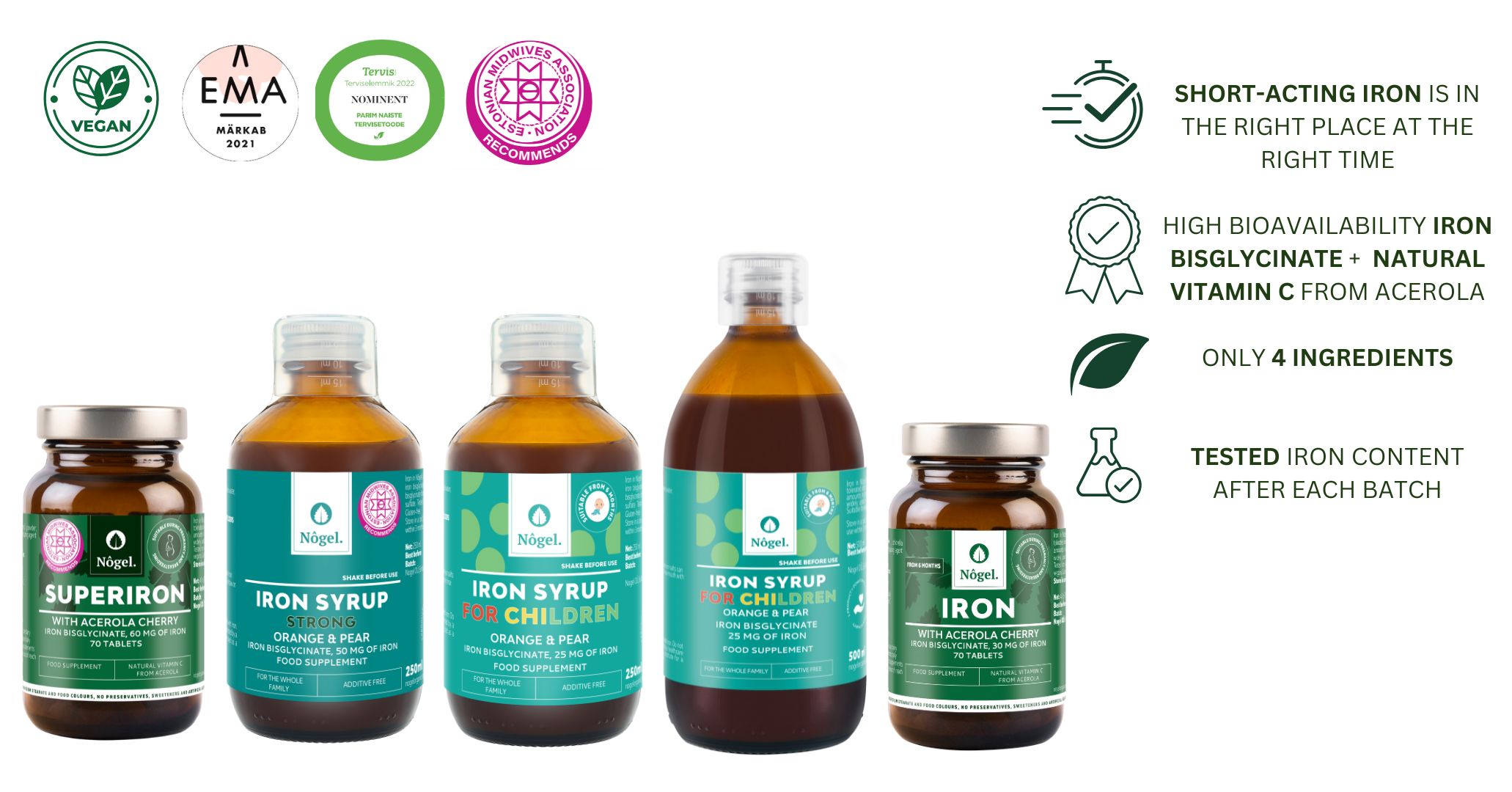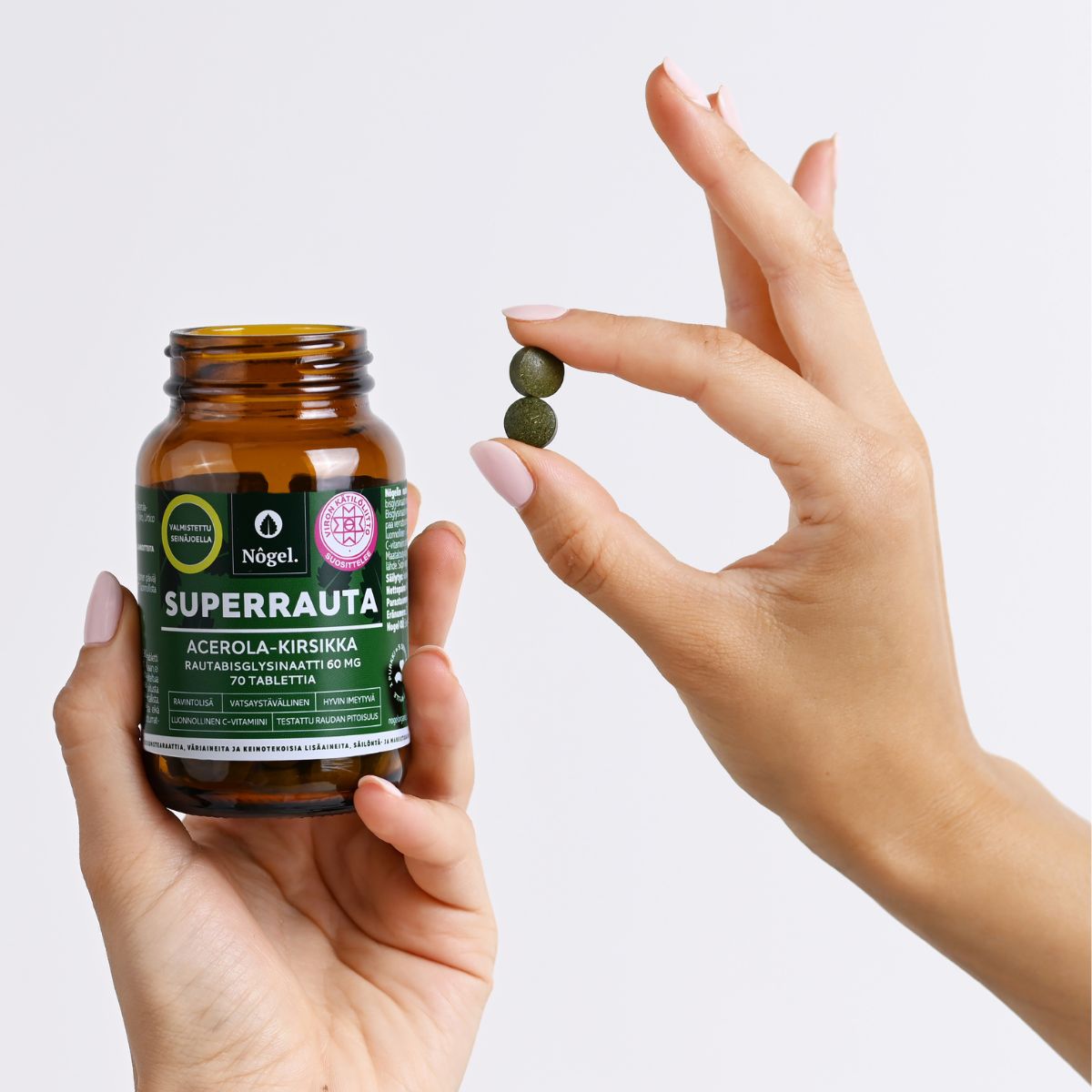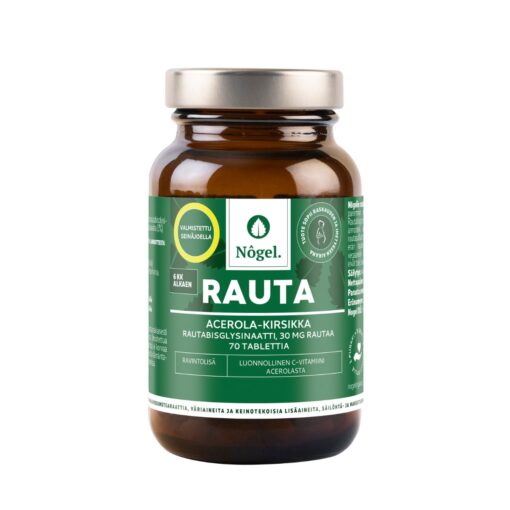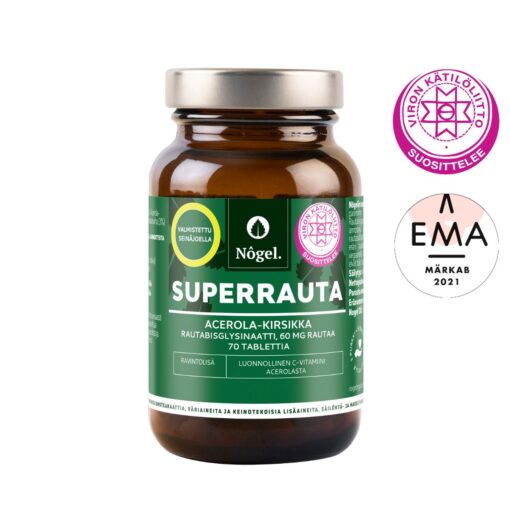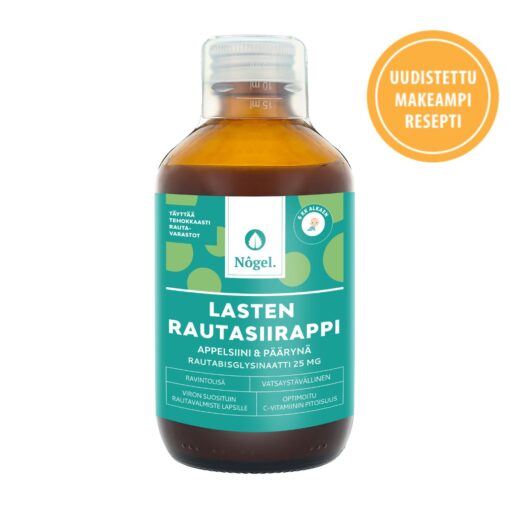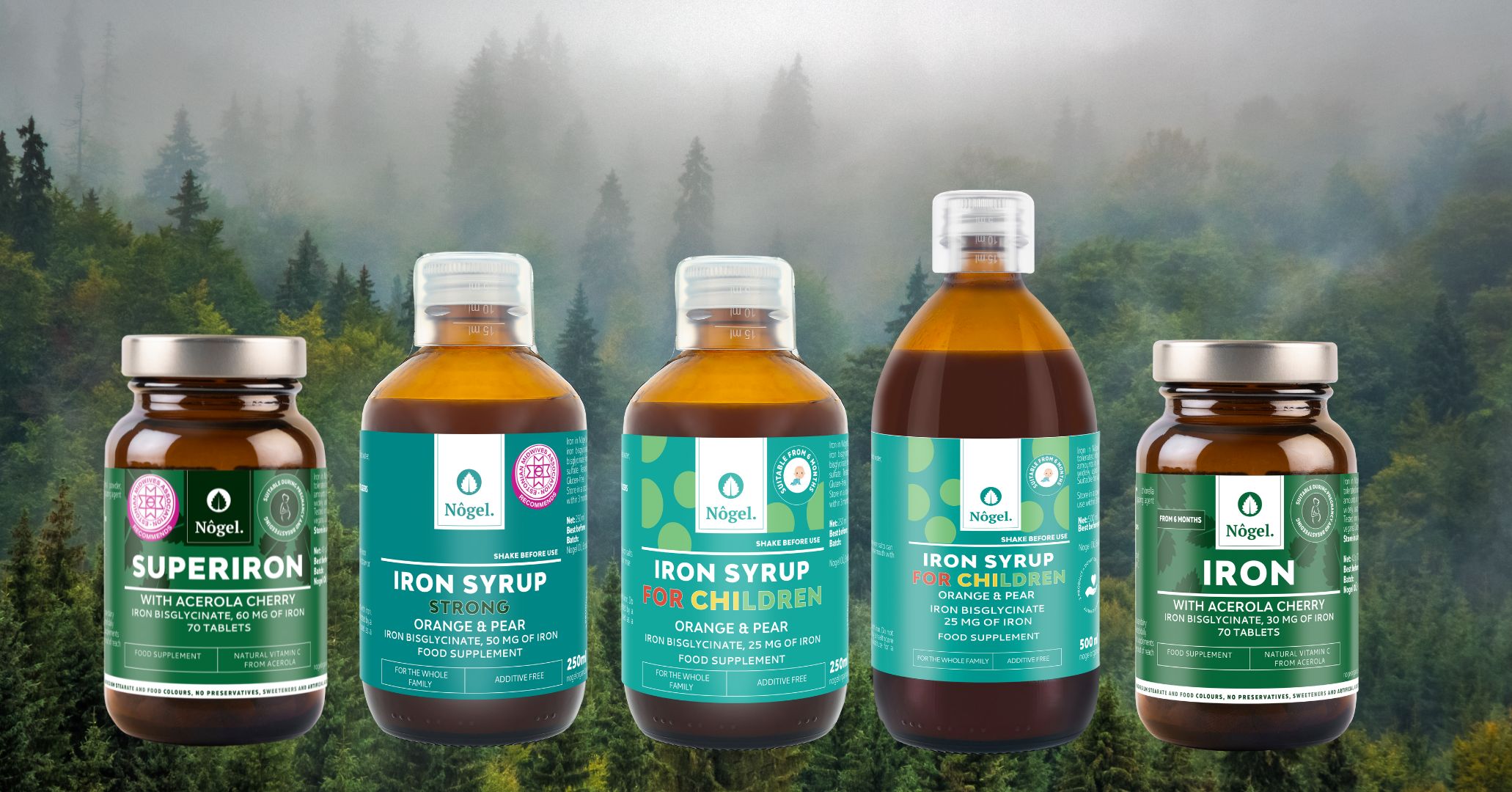Natural vitamin C
We use natural vitamin C from Acerola in iron tablets and orange juice concentrate in iron syrups. Vitamin C increases iron absorption. Our supplements have just enough of vitamin C to reduce oxidative stress related to free iron that may result in using iron and high amounts of vitamin C together. As the natural vitamin C content is different for every orange juice batch, we don´t bring out the vitamin C content for syrups anymore.
Additive free
The products have been produced without artificial additives, preservatives, food dyes, sweeteners, and do not contain widely used magnesium stearate. All products are free from lactose, casein, yeast, soy, GMO, corn, gelatin, animal byproducts and are gluten–free, iodine-free and vegan.
Always tested iron and vitamin C content.
Iron bisglycinate
Iron bisglycinate is a chelated iron salt. Chelation increases the bioavailability of iron, meaning more iron is available to the body, so smaller amounts of iron are sufficient. Iron bisglycinate is a less reactive iron salt that is gentler on digestion. It has been studied for over 25 years in people from infants to the elderly. We use high-quality iron bisglycinate manufactured by Europe’s leading manufacturer of chelated minerals.
Pure ingredients
We only use natural ingredients grown without synthetic pesticides and fertilizers. Most of our ingredients are organic certified.
Developed in Estonia
All iron products are developed and tested in Estonia. Liquid iron supplements are produced in Estonia and tablets in Finland.


